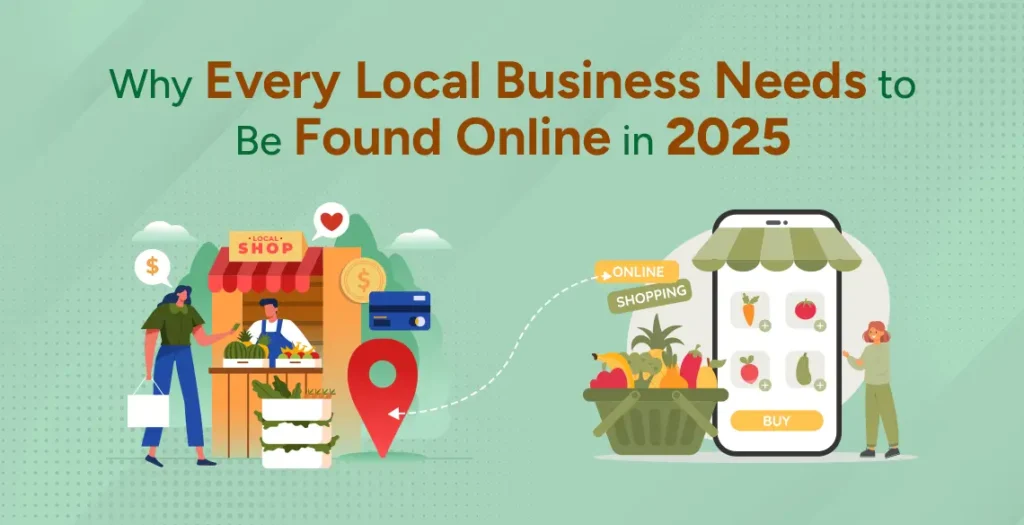Why Every Local Business Needs a Blog in 2025

Think Blogs Are Just for Influencers? Think Again.
In 2025, a business without a blog is like a storefront with no sign. You might be great at what you do—but if no one knows you exist online, it doesn’t matter.
Whether you’re an MSP, salon, HVAC contractor, or local boutique, having a blog on your business website is one of the smartest and most affordable ways to:
- Rank higher in Google
- Showcase your expertise
- Build customer trust
- Drive targeted traffic
- Capture leads in your local market
Let’s explore how blogging fits into your local SEO strategy—and why you should start (or double down) now.
What Is a Business Blog?
A business blog is a dedicated section of your website where you publish articles relevant to your industry, services, and customers.
Think:
- Local guides (“Top 5 Wi-Fi Tips for Small Offices in Grove City”)
- Educational posts (“What Is DNS Filtering and Why It Matters”)
- Promotional content (“How We Helped a Clarion Salon Migrate to the Cloud”)
- Seasonal updates (“Spring IT Maintenance Checklist for Butler Businesses”)
- Customer FAQs (“How Much Does a VoIP Phone System Cost in 2025?”)
1. Blogging Fuels Local SEO
Each blog post is another indexed page Google can find, crawl, and rank. More indexed pages = more search opportunities.
✅ Target Local Keywords
Use blog posts to naturally include “near me” searches, city names, and neighborhood-specific services.
Examples:
- “Best Business Wi-Fi Solutions in Cranberry Township”
- “Why Grove City Businesses Are Switching to 3CX VoIP”
These help your site show up in local organic results and Google Map Packs.
2. Show Up for More Search Queries
Not everyone is searching for “IT consultant Harrisville.” Many Google:
- “Why is my internet so slow in the office?”
- “How do I secure remote workers?”
- “What’s the difference between fiber and CAT6?”
A blog gives you a chance to answer real questions, rank for long-tail keywords, and attract users early in their buying journey.
3. Blogs Keep Your Website Fresh (And Google Loves It)
Google favors active websites. A blog shows your business is:
- Current
- Alive
- Engaged with your audience
Regular updates also give customers a reason to come back and explore your services.
4. Blogs Build Trust and Authority
Would you rather hire a business with a helpful, professional blog—or one with a stagnant “About Us” page from 2017?
Blogging allows you to:
- Explain complex services in plain language
- Highlight your credentials and certifications
- Share case studies and real-world wins
- Offer advice that proves your value
Over time, this builds brand trust—especially for technical services like IT, cybersecurity, and cloud solutions.
5. Fuel Your Social Media and Email Marketing
Writing a blog gives you ongoing content to share elsewhere:
- Pull quotes for social media posts
- Link articles in your email newsletter
- Repurpose blog content into video scripts or infographics
- Use blog topics to spark Facebook or LinkedIn engagement
You create once—then distribute everywhere.
6. Capture Leads with Strategic CTAs
Smart blogs aren’t just informative—they convert.
Every blog should include:
- A call to action (CTA) (“Get a free network assessment”)
- Links to relevant services
- An option to subscribe or contact you
Even readers not ready to buy today may bookmark, share, or return later.
7. Blogs Give You Data
Use Google Analytics to track:
- Which posts bring the most local traffic
- What people are searching for before they arrive
- Which blog pages lead to form submissions or phone calls
This helps you refine your marketing strategy over time.
Real-World Example: Local Blogging Pays Off
A small MSP in Mercer County started blogging weekly. In 90 days, they saw:
- 135% increase in organic traffic
- Page-one rankings for “cybersecurity MSP Clarion” and “cloud backup Franklin PA”
- 9 leads from blog-driven form fills
- One $18K annual managed services client from a blog titled: “Why Your Business Wi-Fi Keeps Dropping (And How to Fix It in Grove City)”
All from writing content that answered real, local questions.
Best Practices for Blogging on Your Business Website
✅ Focus on Quality Over Quantity
One well-written, keyword-optimized post per week is better than five rushed ones.
✅ Use Real Photos When Possible
Show your team, your work, and your location to build local recognition.
✅ Write for Humans, Then Optimize for Google
Answer questions in plain language. Then add:
- Relevant keywords
- Location mentions
- Header tags (H2, H3)
- Meta title + description
- Internal links
✅ Include a Call to Action
Never end a post without telling the reader what to do next.
“Need help with your business network in Butler County? Contact NextGEN IT Solutions today for a free consultation.”
Struggling to Write? Start With These Topics:
- “Top 5 IT Mistakes Small Businesses Make in Grove City”
- “How to Tell if Your Business Needs a Managed Firewall”
- “Why Local Backups Matter in Ransomware Recovery”
- “Best Office Wi-Fi Setup for Clarion County Startups”
- “What to Know Before Switching to VoIP in 2025”
Want more ideas? Just ask.
Need Help Starting or Managing a Blog?
At NextGEN IT Solutions, we help small businesses:
- Create blog strategy aligned with SEO
- Write and publish optimized content
- Promote posts across email and social
- Turn blog traffic into real leads
📞 724-204-1950
🌐 https://nextgen-itsolutions.com/contact
In today’s search-first world, blogging isn’t optional—it’s foundational. A blog on your business website can be the difference between being found… or forgotten.



